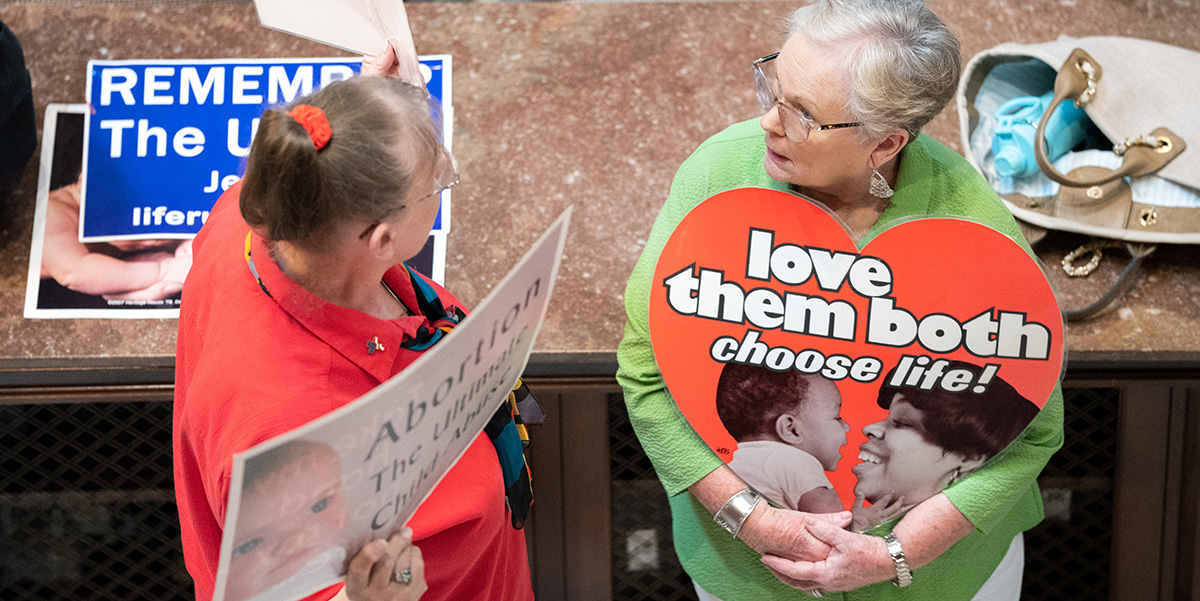After last June the American Supreme Court eliminated the right to abortion at the federal level, thus allowing each state to establish its own rules independently, access to abortion in the United States is increasingly being restricted. With choices interpreted as part of the same trend, in recent months various states governed by Republican majorities have also introduced restrictions on the rights of trans and LGBTQ+ people.
The correlation between the annulment of “Roe vs. Wade”, the 1973 sentence which guaranteed access to abortion throughout the US national territory, and the greater difficulties experienced by those who would like to terminate a pregnancy is quite evident: twenty states have approved restrictive measures in this area after the revision of the sentence. Abortion today it is practically banned in fourteen states — there are exceptions in certain states for pregnancies due to rape — and it’s only allowed within six weeks of gestation, a period before which many women don’t know they’re pregnant, in one fifteenth, Georgia.
In Utah and Arizona it is currently possible within 18 and 15 weeks respectively – in Italy, on the basis of law 194 of 1978, it is possible to have voluntary termination of pregnancy within 90 days (12 weeks and 6 days) from the last menstruation – but state institutions have tried to impose limitations: they have not entered into force because the courts have temporarily blocked the new laws. In South Carolina, one of the few southern states where significant restrictions did not apply, the state legislature voted on Tuesday to impose a ban starting in week six, and enforcement was temporarily halted by a judge on Saturday. Five other states are in similar situations.
In the rest of the country (24 states and the District of Columbia, the territory of the capital Washington) abortion is allowed without defined limits with respect to the weeks of gestation, or within 22 or 24 weeks. There vast majority of voluntary terminations of pregnancy, however, occurs within 13 weeks.
In parallel with the new restrictions on abortion, the rights of LGBTQ+ people have also undergone severe limitations, and since the beginning of 2023, 417 discriminatory law proposals have been discussed towards these minorities. The limitations concern in particular the so-called “gender-affirming medical care”, or that set of pharmacological and surgical measures to treat gender dysphoria, the condition of discomfort and suffering of those who do not recognize themselves in the gender corresponding to their biological sex. Seventeen states have introduced measures to hinder or completely prevent sex reassignment surgery, as well as the administration of puberty blockers (drugs that temporarily stop the development of secondary sexual characteristics, such as growth of breasts and body hair) in the case of minors. Doctors who fail to comply with the ban risk losing their license or facing criminal prosecution.
These new laws do not only concern the medical aspects. In Florida, Governor Ron DeSantis recently approved restrictions on, among other things, the use of non-gendered pronouns in schools that match nouns on records. He also limited the possibility of organizing drag shows (those in which you play very flamboyant characters generally of a different genre than your own) where there may be minors in the vicinity. A similar measure was taken in Tennessee and a similar one was discussed in Alabama.
According to some observers, the choice of Republicans to invest political capital in limiting the rights of LGBTQ+ people and access to abortion can be explained by the need to guarantee the vote of the evangelical community, which has become increasingly relevant since the 1980 presidential election , the one won by Ronald Reagan. According to the US research institute Pew Research Center, “Evangelical Christians” — a group that includes numerous religious communities, such as the Baptist or Lutheran — represent approximately 24 percent of the US population; three-quarters of evangelicals identify as Republicans, and tend to unite around a narrow core of social issues tied to a conservative view on the family.
With the declaration of unconstitutionality of laws punishing same-sex sexual relations in 2003 and the extension of the constitutional right to same-sex marriage in 2015, abortion and gender identity are today the most relevant social issues for evangelicals on which it is still possible to wage a political battle.
